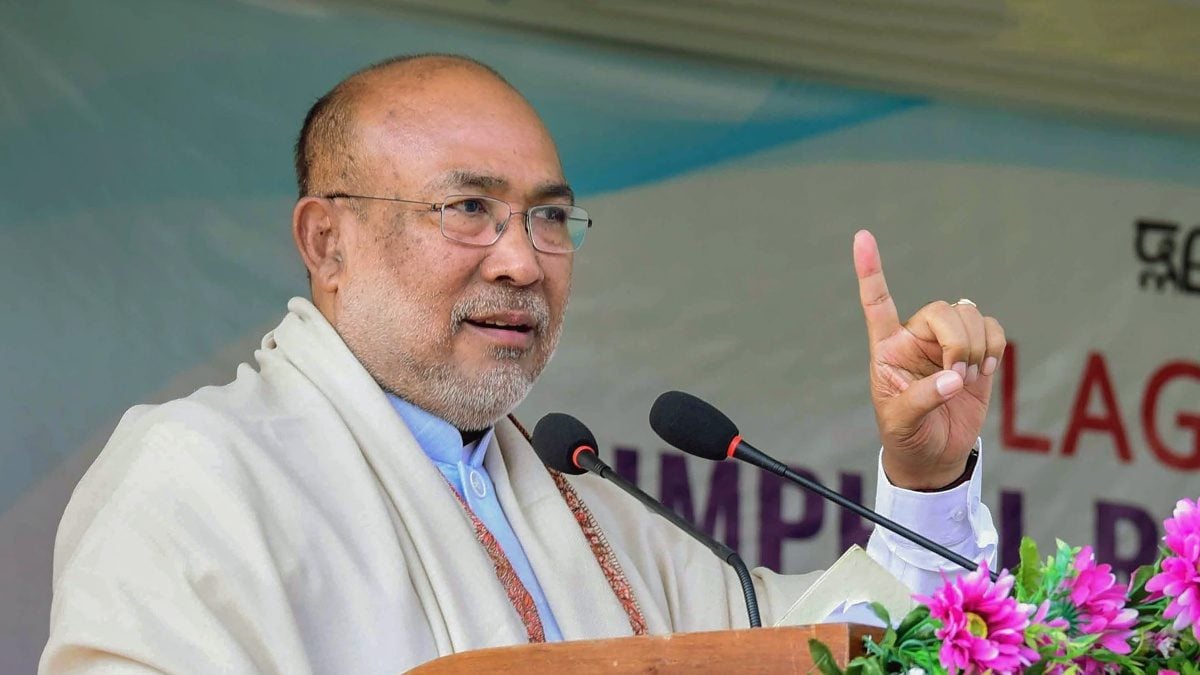The recent surge in violence in Manipur has ignited a call for decisive action from the state’s Chief Minister, N Biren Singh. In a memorandum submitted to Governor Lakshman Prasad Acharya, Singh implored the Centre to take proactive steps to safeguard Manipur’s territorial integrity and quell the unrest that has gripped the state for over a year. He specifically urged the central government to reject demands for a separate administration from Kuki Zo groups and to empower the elected state government with sufficient authority to restore peace.
A Plea for Territorial Integrity and Peace
Chief Minister Singh’s appeal to the Centre underscores the gravity of the situation in Manipur. The ongoing clashes between Meitei and Kuki communities have left over 200 people dead, displaced thousands, and deeply fractured the social fabric of the state. The outbreak of violence in Jiribam district, which had previously remained relatively peaceful, highlights the volatile nature of the conflict and its potential to escalate further.
Singh’s insistence on safeguarding Manipur’s territorial integrity suggests a growing concern that the demand for a separate administration by certain groups could further fragment the state and exacerbate the conflict. He appears to believe that unity and a cohesive approach are crucial to resolving the crisis. His request for increased power for the elected state government likely stems from the belief that a strong, locally based authority is needed to effectively manage the situation and implement solutions.
The SoO Agreement and its Significance
Singh’s call for revoking the Suspension of Operations (SoO) agreement with Kuki militant outfits highlights the delicate balancing act involved in addressing the conflict. The SoO pact, signed in 2008 and periodically renewed, aimed to bring an end to hostilities and create an environment conducive to negotiations.
However, the ongoing violence suggests that the agreement has not been successful in achieving its intended objective. The Chief Minister’s belief that revoking the pact could be a necessary step toward restoring peace implies a perceived failure of the agreement to address the root causes of the conflict.
The Urgency of a Comprehensive Solution
The recent escalation of violence in Manipur calls for a comprehensive approach that goes beyond merely maintaining peace. Addressing the underlying issues that have fuelled the conflict is essential for achieving a lasting solution. This includes addressing historical grievances, resolving land disputes, promoting social cohesion, and fostering a sense of shared identity among the various communities.
Beyond Security Measures
While security measures are undoubtedly crucial to stem the violence, a focus solely on law enforcement is unlikely to bring about sustainable peace. Building trust and confidence among the communities through dialogue, reconciliation, and inclusive development initiatives is equally important. This necessitates a concerted effort by the government, civil society organizations, and communities themselves.
Addressing the Concerns of All Communities
The demands for a separate administration and the call for revoking the SoO agreement reflect the complex and multifaceted nature of the conflict. Finding a solution that is acceptable to all communities is a challenging but imperative task. Open communication, mutual understanding, and a willingness to compromise are essential to navigate this complex issue.
The Centre’s response to Chief Minister Singh’s appeals will be crucial in shaping the trajectory of the conflict. A robust and holistic approach that combines security measures, dialogue, and inclusive development initiatives is likely to be most effective in fostering a lasting peace in Manipur.
Takeaway Points
- The recent escalation of violence in Manipur has prompted Chief Minister N Biren Singh to urge the Centre to protect the state’s territorial integrity and empower the state government to restore peace.
- Singh specifically called for rejecting demands for a separate administration by Kuki Zo groups and revoking the Suspension of Operations agreement with Kuki militant outfits.
- Addressing the conflict requires a comprehensive approach that goes beyond security measures and focuses on addressing underlying grievances, promoting social cohesion, and fostering a sense of shared identity among the communities.
- Finding a solution that is acceptable to all communities is a challenging but essential task. Open communication, mutual understanding, and a willingness to compromise are critical for achieving lasting peace.
- The Centre’s response to the Chief Minister’s appeals will be crucial in shaping the trajectory of the conflict.




